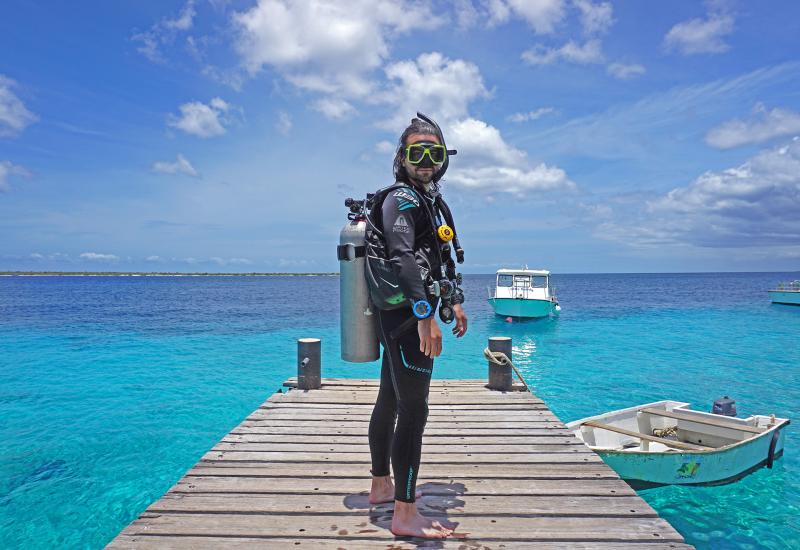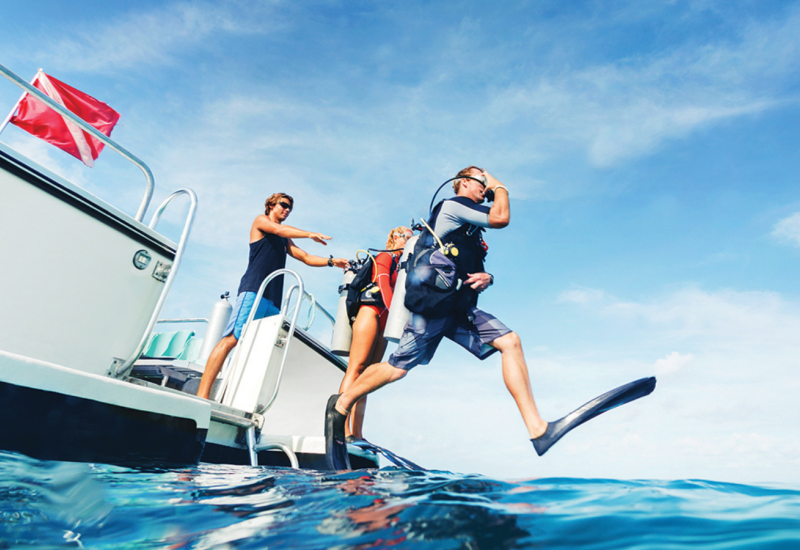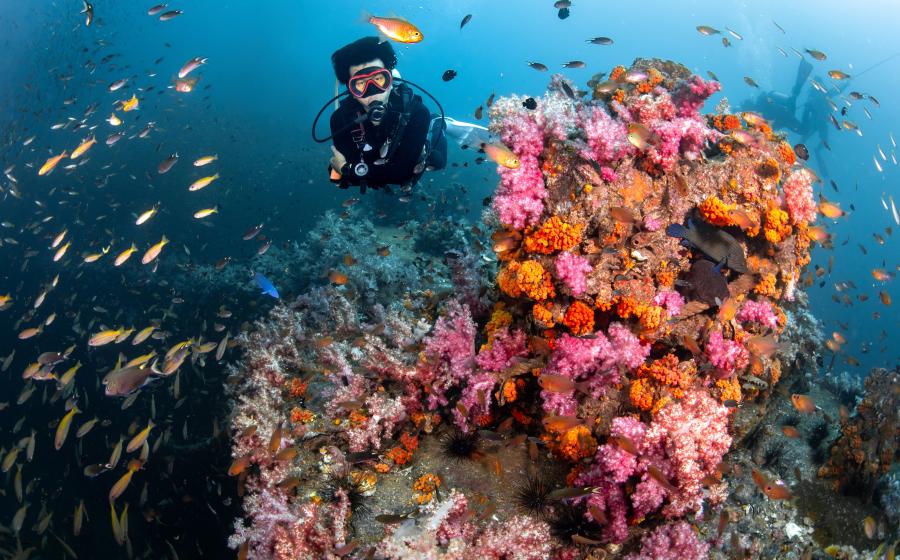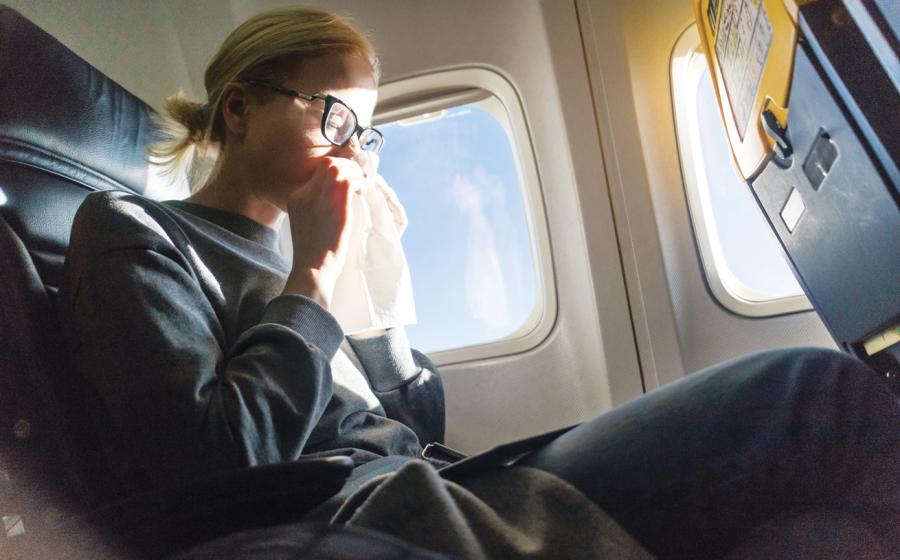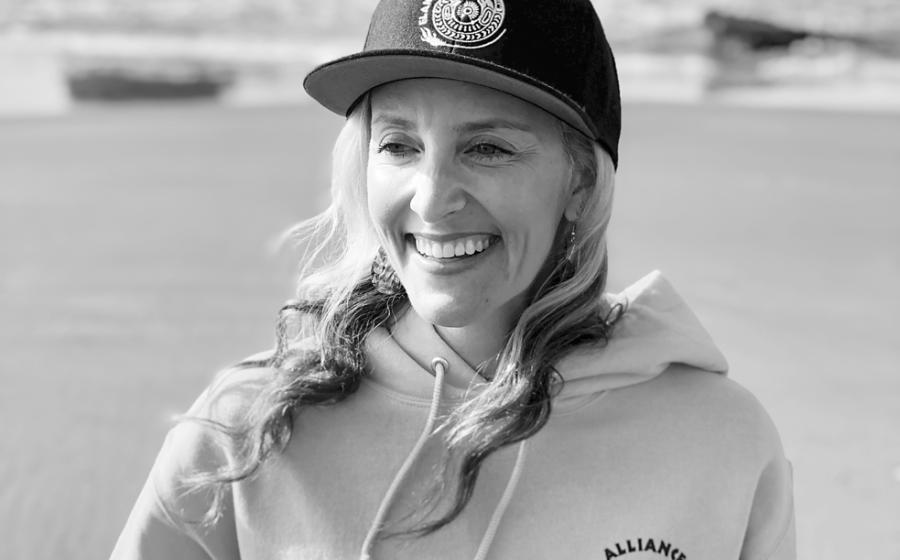Dive Pro Tips for Making Your First Boat Dive
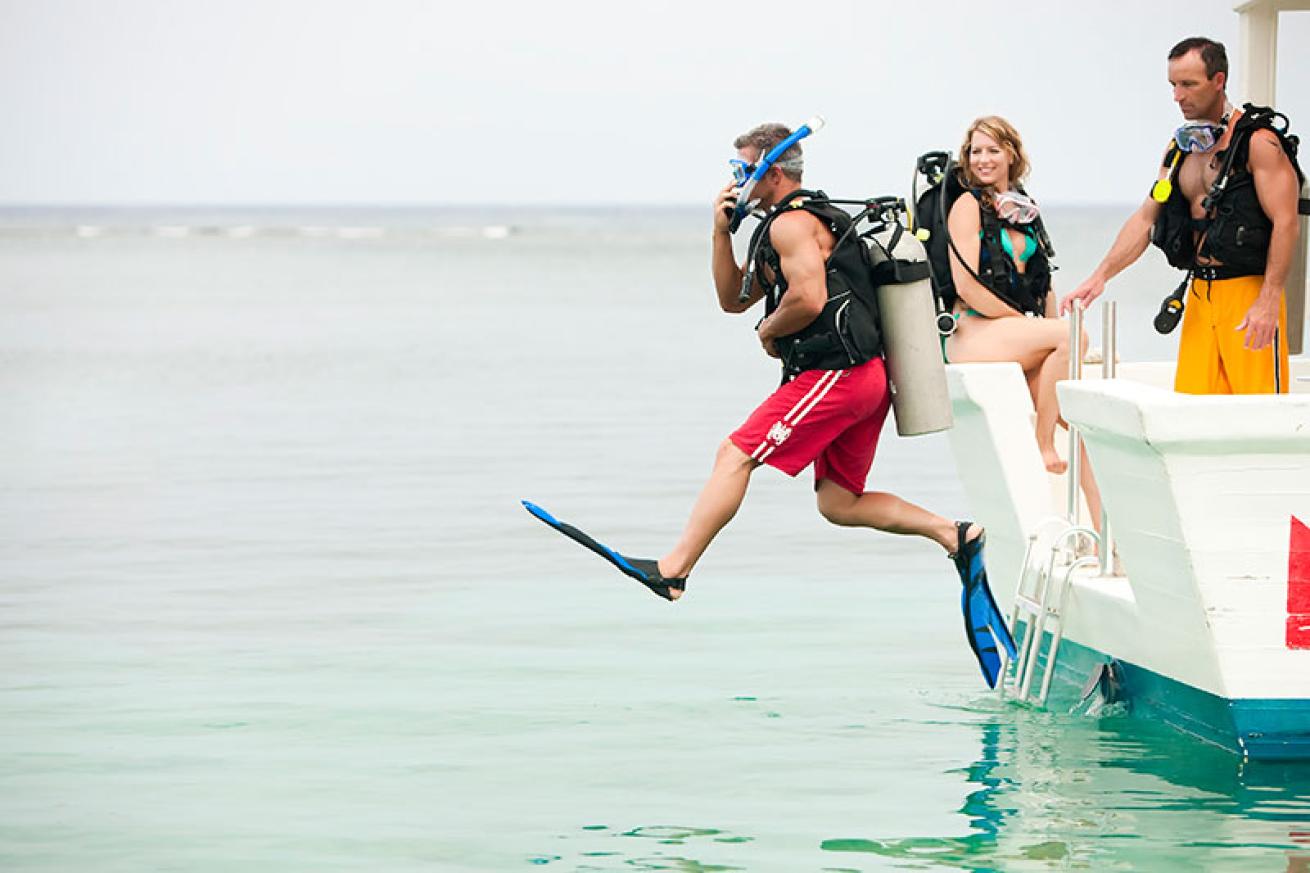
iStockFrom performing a proper buddy check to making an effortless giant-stride into the ocean, our best tips for easy-peasy boat diving.
Want to make your first boat-dive trip less stressful and more enjoyable? Follow our tips and handle it like a pro.
The Buddy Check
Remember the buddy checklist you learned in open-water training? You should do these steps with your buddy before you giant stride off the boat:
• Reg working? Air turned on?
• Have the correct amount of weights? Do you know how they release in an emergency?
• Is your BC comfortable, low-pressure inflator hooked up securely, hoses routed correctly?
• Is the tank secure?
• Do you have all necessary accessories, such as a dive light?
• Have you made a dive plan and decided who will lead?
“Buddy checks are valuable on any dive, boat or shore,” says Karl Shreeves, PADI Technical Diving Executive. “At the very least, they can prevent an inconvenience like forgetting your weights and having to get back out. But more importantly, they can prevent safety-related problems by confirming adequate gas supply, properly functioning life support (regulator or CCR), connected inflator hoses, etc. With standard recreational kit, a predive check takes about a minute – maybe two – so there’s no good reason for skipping them.”
“Problems can be solved a lot quicker and way more efficiently on a boat or land, then it can be done underwater or bobbing on the surface,” says Liz Parkinson, instructor at Stuart Cove’s Dive Bahamas. “The Buddy Check gives you that solid foundation and understanding between you and your buddy that everything is OK. It provides reassurance that all your equipment has been set up correctly, that it is functioning as it should, that your air is on, that you are both on the same page with regards to your dive plan. It does not take a lot for unnecessary problems to mess up your diving day, so for only a couple minutes, a buddy check is well worth it.”
“You don’t want to do a giant stride into the water off the dive boat and realize you forgot your weights as the rest of the group is descending while you are trying to swim back to the boat and get the attention of the crew member to hand you weights,” says Jo Mikutowicz, managing partner of Grand Cayman’s Divetech. “You will also discover things like your BCD inflator not being attached and your BCD not being inflated before you enter the water.”
Parkinson likes this memory aid:
BWRAF – BCD is on and fastened correctly, Weights are in a secure place, either on a belt or integrated, Releases are fastened and you and your buddy know where to locate them, and Air is on, Final ‘OK’ you’ve got your mask, snorkel, fins and you are ready to go!
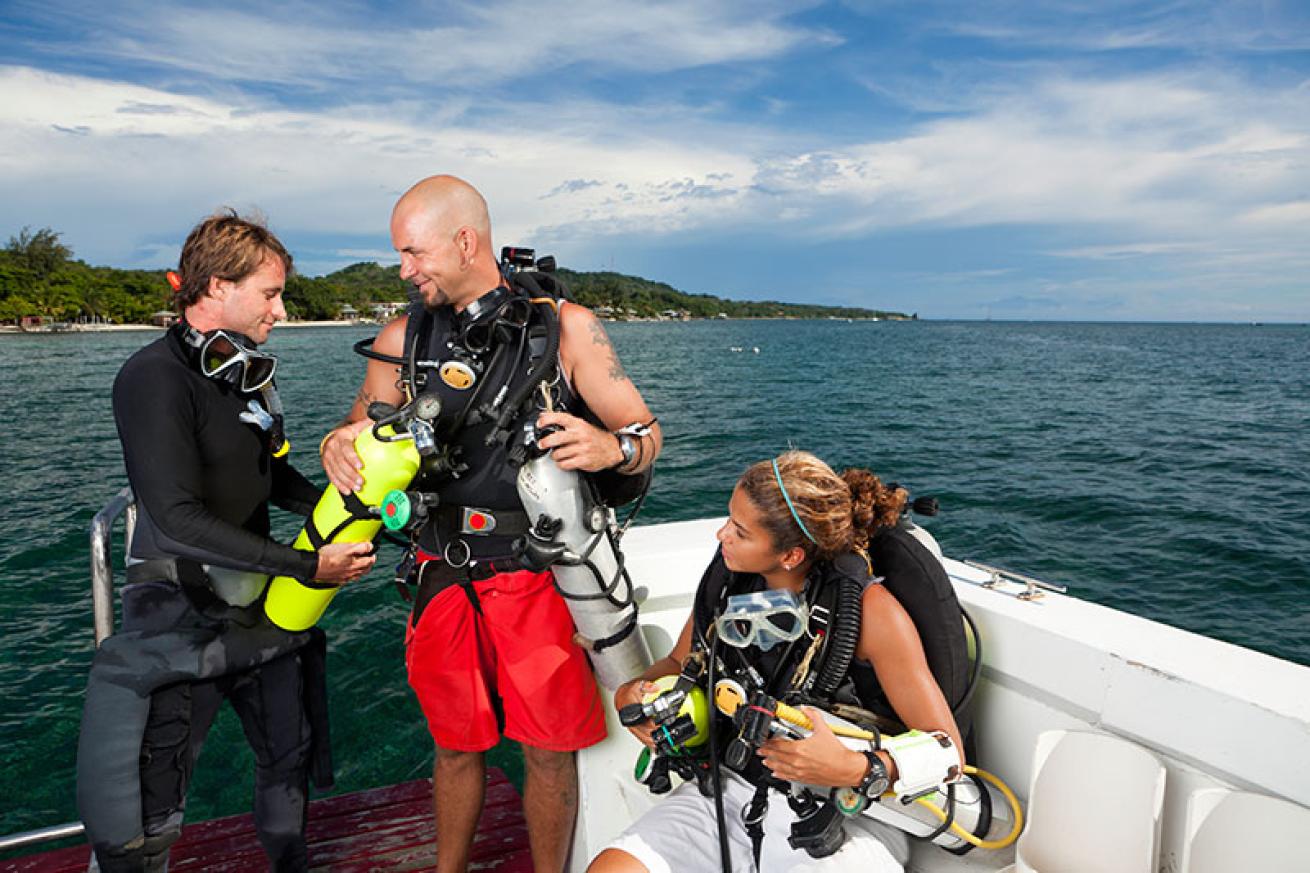
iStockRemember, the dive boat crew can help you with setup of your gear.
The Boat Crew Assist
How can the boat crew assist a new diver?
“There are dozens of ways a boat crew can assist a new diver, and most crews are pretty good at them,” says Shreeves. “All divers, experienced and new, are ultimately responsible for deciding whether or not to make the dive. One way the crew can help is by pointing out conditions, depths and other variables – as best they can in the situation – to assist with making that decision.”
“For the most part new divers can and do get nervous their first time out, especially when they are surrounded by people who are experienced and know how boat charters are run,” says Parkinson. “The first thing dive/boat crew can do is help the new diver find a tank to set up their gear up on. From there guide them through the gear setup, where to store their fins, secure their mask and wetsuit and find the most appropriate spot to keep their personal gear dry. This takes a great deal of pressure off the diver.”
Mikutowicz says the boat crew should give a brand-new diver’s gear “a once over — to make sure they have everything together properly. Reinforce the boat briefing, so they know how to enter and exit the water, where to store their gear, which tanks to rinse their masks in.”
Parkinson adds that “it’s also always reassuring, no matter the experience level, to hear about the dive site or sites that the boat is going to — the boat crew and divemaster should be the friendly face that a new diver can turn too if there are any questions or concerns. Another good idea is to introduce them to a fellow diver that may need a dive buddy, or is the same experience level. After all, you want this experience to be a good one so they keep on coming back!”
GET MORE: Read our Ultimate Guide to Dive Boat Safety & Etiquette
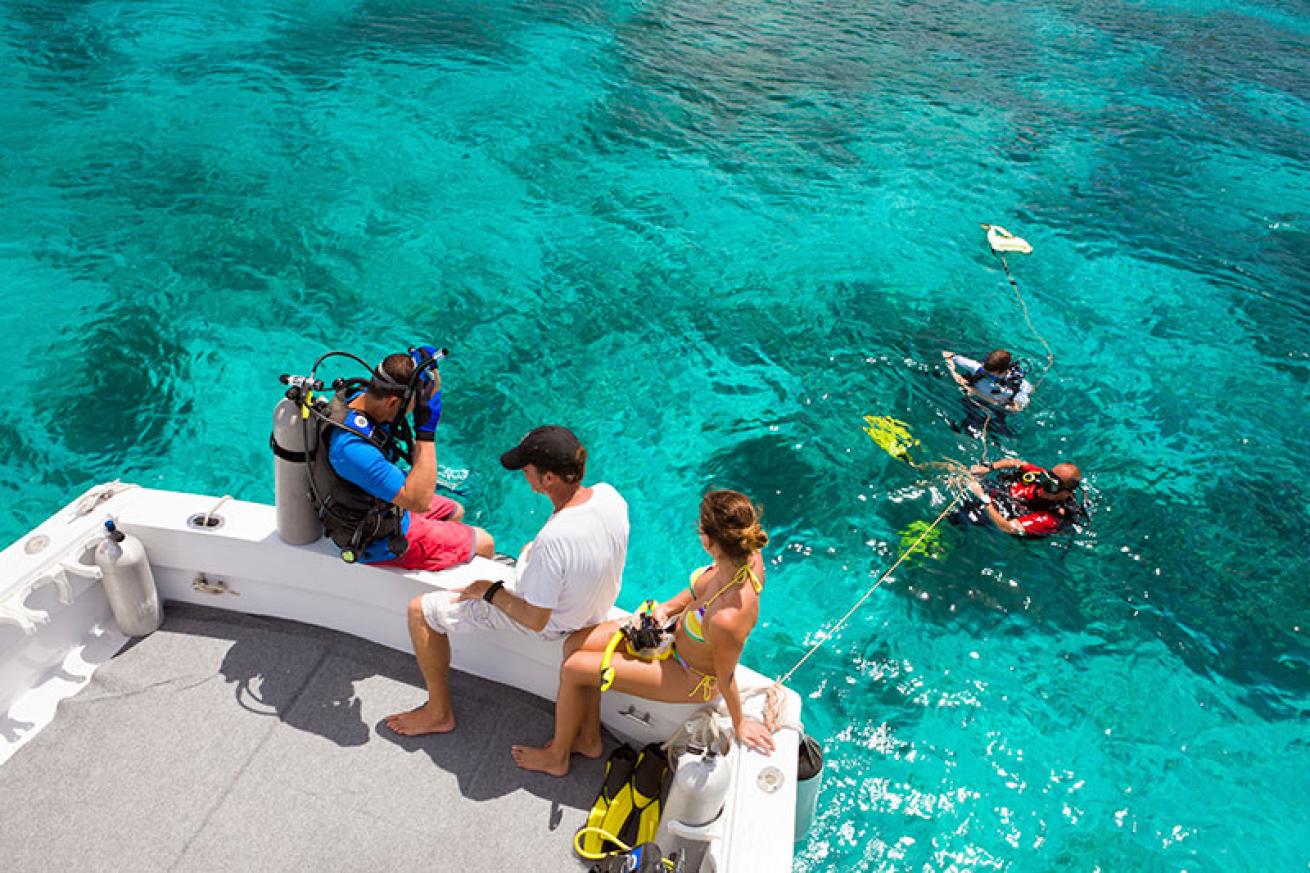
iStockMake sure you follow the dive boat crew's instructions for entering the water.
Cross Check
What should a buddy team do just before descending?
Karl Shreeves sums it up: “Just before descending, a buddy team should 1) confirm everyone’s ready, 2) orient themselves to the boat or some other reference, 3) switch from snorkel to regulator, 4) confirm computers are active and not in sleep mode (not usually an issue with the current models, though) and 5) signal and start down together slowly. This is Open Water Diver 101 – five simple points that get your dive started on the right foot.”
Parkinson has a favorite memory aid for this step, too:
“The five-point descent is always a great way to start a dive. That way you know that you and your buddy are on the same page! Remember the acronym SORTED: Signal, Orientate, Snorkel Out, Regulator In, Check the Time, Equalize and Descend. This is a pretty normal standard to teach, when certifying somebody, so any new diver should automatically do this. However, even for more experienced divers it is a good step list to go through. This way you always descend with your buddy and do not end up looking for them underwater before the dive has even started!”
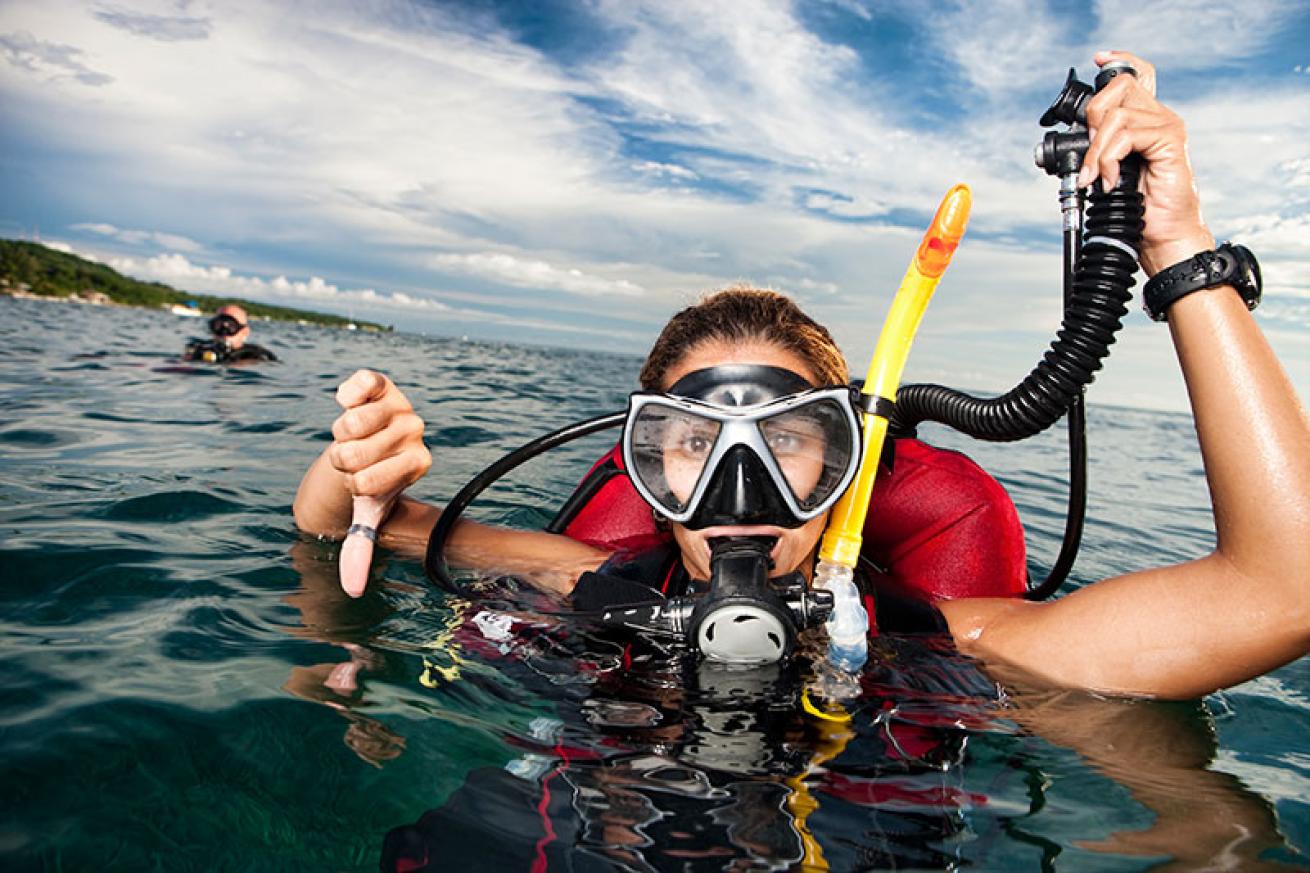
iStockOnce you've done a final buddy check at the surface, you're ready to begin the dive!
Final Advice
The pros say that new divers — and even experienced ones — often don’t think about the obvious things.
“New divers often bring brand new-gear with them and are not sure how to set it up,” says Parkinson. “It is always a good idea to put this stuff together at home first, make sure it fits and familiarize yourself with it before taking it out on a dive. Make sure the regulators work, the BCD holds air, your fins fit, your mask won’t fog up and you are happy with your exposure suit.”
“Divers often pack too much dive equipment in large roller-type bags that are generally too large for dive boats,” says Mikutowicz. “Just bring what you need for the dive. Pack it in mesh bags that can be squished up and stored in a small space.”
Don’t forget to pack the common-sense stuff, adds Parkinson. “Don’t underestimate what you will need for a day out on the water. Make sure you've got sunscreen, a towel, windproof jacket, plenty of water, chapstick — and a good attitude.”
There are also safety considerations to be aware of, says Shreeves. “The biggest mistake any diver can make when getting ready for a boat dive is failing to put their name on the dive roster. This is very important because if there is more than a handful of divers, crews commonly double check to be sure everyone’s back from each dive by calling roll from the roster.”
And don’t be embarrassed to tell the crew you’re a new diver, say the pros.
“I love how excited new divers are about everything,” says Mikutowicz. “Even the small stuff that, as dive guides, we see hundreds of times in a week.”
Parkinson feels the same way: “The smile on their faces generally says it all, but it is fun to hear what they have to say and all the questions that get thrown your way. New divers can find any dive fun; they just love being underwater. In fact, any new experience — first time seeing a shark, manta ray, whale, octopus or diving on a wreck, can give the most experienced diver that ‘first-time’ excited feeling, and it is great to experience that with them.”
Say Shreeves: “The best part about diving with new divers is seeing their wonder and surprise at things I’ve started to take for granted, because it reawakens my wonder and surprise over the very same things. Diving is almost unique in that it is a sport in which, at an appropriate site, a brand new enthusiast and highly seasoned pro can participate together and both have a great time. Do that with, say, tennis, and one of the two isn’t going to have much fun.”
Mind Your Manners
Finally, a few simple reminders:
• Be on time and get your gear ready. Take your time; rushing increases anxiety and stress.
• Remember cash to tip the crew.
• Listen closely to the dive briefing, both the boat and dive site one. Secure tanks and weights and all other gear as instructed by crew. Keep your gear station organized.
• After you enter the water and before you give the signal to descend, do one final check: Is your air on? Is your weight belt still in place? Is your buddy OK? Have you taken a moment to relax and take some deep breaths?
The bottom line: Take your time. Remember your training. Seek the advice of the pros and boat crew. Take a deep breath and relax. And don’t forget your C-card!



